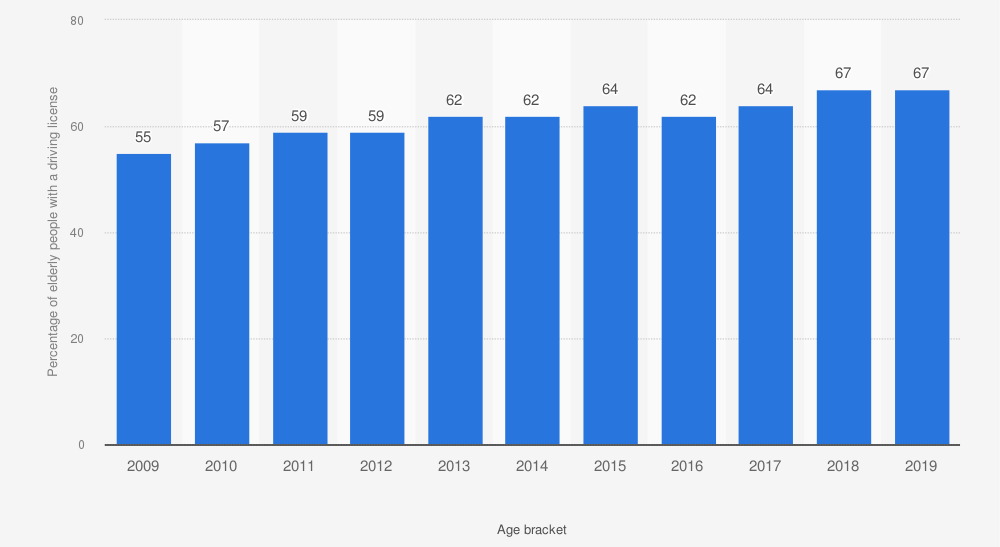
From October 2025, new rules from the UK’s Driver and Vehicle Licensing Agency (DVLA) will require drivers aged 62 and older to meet stricter health and eyesight standards. These regulations aim to ensure road safety while addressing the needs of an aging population. The changes will include mandatory health declarations and eye tests for those renewing their driving licences.
DVLA Confirms New Licence Rules
| Key Fact | Detail/Statistic |
|---|---|
| Health Declaration | Drivers over 62 must declare health status for licence renewal. |
| Eye Test Requirement | A recent eye test will be mandatory for drivers aged 62 and above. |
| New Age-Related Driving Tests | Practical driving assessments required for drivers aged 65+. |
| Annual Renewals for Some Drivers | Drivers with serious health conditions may need to renew annually. |
| Official Website | DVLA |
The DVLA’s new regulations reflect an evolving approach to managing the safety of senior drivers in the UK. While these changes may require some adjustment, they are ultimately designed to promote both independence and safety for older drivers. As more people live longer lives, the balance between road safety and personal freedom remains a key issue, one that requires ongoing attention and adaptation.
DVLA’s New Rules: What Drivers Over 62 Need to Know
In a significant shift for senior drivers, the Driver and Vehicle Licensing Agency (DVLA) will introduce new regulations starting in October 2025. These changes primarily affect drivers aged 62 and older, who will face stricter health, vision, and fitness-to-drive assessments. As the UK’s population ages, the DVLA’s decision comes in response to growing concerns about the safety of older drivers on the roads.
Health Declarations for Drivers Aged 62 and Over
A key component of the updated regulations is the requirement for drivers aged 62 and above to submit a health declaration as part of their licence renewal process. This declaration will confirm that the driver does not suffer from any medical conditions, such as heart disease, diabetes, or neurological disorders, that could impair their ability to drive safely. According to a statement from the DVLA, this is aimed at ensuring that those who may pose a risk to road safety are properly assessed.
Dr. Fiona Hall, a senior consultant at the Royal Society for Public Health, stated, “This measure is not only about reducing risks on the road, but also providing an additional safety net for elderly drivers who may be unaware of changes in their health.”
Eye Test Standards
Alongside health declarations, older drivers will also be required to meet specific eyesight standards. Drivers must submit evidence of having passed an eye test, confirming that they can read a number plate from 20 meters away. The DVLA’s revised eyesight standards will help ensure that drivers maintain the necessary visual acuity to respond to hazards quickly and safely. If a driver fails to meet these standards, they may be prohibited from driving until they have corrected their vision.
“Vision impairment is one of the leading causes of road accidents involving senior drivers,” said Professor Sarah Gold, an ophthalmologist at University College London. “The new regulations aim to catch these issues before they lead to more serious accidents.”
Age-Specific Driving Assessments
The DVLA’s new regulations will also introduce driving assessments for those aged 65 and older. These assessments are designed to evaluate the driver’s reaction times, hazard perception, and overall fitness to operate a vehicle. While similar to the tests new drivers must take when obtaining their licences, these assessments will be shorter and focused on age-related concerns.
The move is part of the government’s broader strategy to ensure that senior drivers remain capable behind the wheel, without unfairly restricting their independence. A recent study by the Age UK Foundation found that 50% of those over 65 rely on their vehicles for essential daily tasks, such as shopping and attending medical appointments.
Impact on Drivers with Serious Health Conditions
For drivers with serious medical conditions, the DVLA may require annual licence renewals. In these cases, drivers will need to submit a report from their GP or a specialist to confirm their continued ability to drive safely. The new regulations recognise that conditions like dementia or Parkinson’s disease can affect a driver’s ability to respond to road conditions, and periodic assessments are seen as a necessary safeguard.
Simon Jenkins, a leading advocate for road safety and public health, commented, “While it is important to balance road safety with the need for independence, there is a growing recognition that certain conditions should be assessed more frequently as they progress.”
Aging Population and Road Safety: The Bigger Picture

The need for stricter regulations for older drivers arises from the broader context of an aging population in the UK. According to the Office for National Statistics (ONS), the proportion of people aged 65 and over is projected to increase from 18% of the population in 2021 to 23% by 2036. With this demographic shift, the number of senior drivers on the roads is expected to rise.
As people age, certain physical and cognitive abilities can decline, which may affect their driving. Reduced reaction time, slower decision-making, and declining vision are just a few of the factors that can make driving more dangerous for older individuals. This has prompted authorities to consider more rigorous testing to prevent accidents and ensure that senior drivers are fit to operate a vehicle.
John Thompson, an expert in road safety at the Institute for Transport Studies, said, “There’s a delicate balance between allowing people to retain their independence and ensuring that they’re driving safely. These new measures represent a step toward that balance.”
Expert Opinions: Health Conditions and Their Impact on Driving
While the new DVLA rules focus on eyesight and general health declarations, specific health conditions deserve particular attention when considering older drivers’ ability to stay safe on the road.
- Dementia and Cognitive Decline: Drivers with dementia or similar conditions may struggle with memory, problem-solving, and judgment, all of which are critical skills for safe driving. As such, regular medical assessments are required to determine whether a driver is still capable of driving.
- Arthritis and Mobility Issues: Older drivers suffering from arthritis may face challenges with physical mobility, particularly in their hands, knees, or shoulders. This can make it difficult to steer, brake, or operate the vehicle with full control.
- Diabetes and Seizures: Individuals with diabetes or those prone to seizures must also be regularly assessed, as sudden changes in blood sugar or a seizure could put both the driver and others at risk.
For many of these conditions, the DVLA has made provisions for regular medical assessments to ensure that drivers remain fit to drive.
Comparative Analysis: Senior Driving Regulations Around the World
While the UK is introducing new regulations to address senior drivers’ safety, other countries have already implemented similar measures. For instance, in Germany, drivers over 75 are required to undergo regular health checks, including eyesight and reaction time assessments, to renew their licence.
In the United States, senior drivers are subject to different regulations depending on the state. In states like Florida and California, drivers over 70 are required to renew their licence more frequently and undergo vision tests.
These international practices reflect a growing recognition of the importance of monitoring senior drivers as populations age worldwide. The UK’s new rules are in line with these global efforts to balance road safety with the rights and freedoms of older individuals.
Public Reaction and Concerns
The response to the new DVLA rules has been mixed. While many senior drivers recognise the importance of ensuring safety on the roads, there are concerns that the new regulations may unfairly target older individuals. Advocacy groups like Age UK have expressed concerns that the rules may be seen as discriminatory, especially for those who are in good health.
However, safety organisations argue that these changes are necessary to ensure that the increasing number of senior drivers are fit to drive. The new rules, they assert, are not intended to punish, but to protect both drivers and other road users.
What Older Drivers Should Know About Insurance
The new regulations may also have implications for car insurance. Insurance providers often assess a driver’s health and age when determining premiums. Drivers who fail to meet the new DVLA standards may see their insurance rates rise, or in some cases, face difficulty in renewing their policies. It is crucial for senior drivers to stay up to date with their health checks to avoid complications when purchasing or renewing car insurance.
Government Support for Senior Drivers
The UK government offers several resources to help senior drivers stay safe and compliant with new regulations. For instance, the Road Safety and Driver Education Scheme provides funding for driving courses aimed at older drivers. Additionally, organisations such as The Royal National Institute of Blind People (RNIB) offer support for those needing assistance with vision impairments.
DWP Cuts £416 a Month from Key Benefit – How to Safeguard Your Family’s Income
Technological Innovations and Senior Drivers
Advancements in technology, particularly Advanced Driver-Assistance Systems (ADAS), offer promising solutions for older drivers. These technologies, such as lane-keeping assist, automatic braking, and adaptive cruise control, can help mitigate some of the challenges that older drivers face, enhancing safety on the road.

